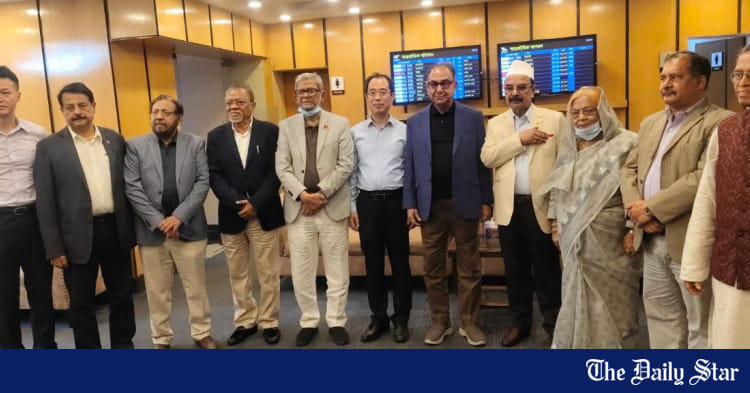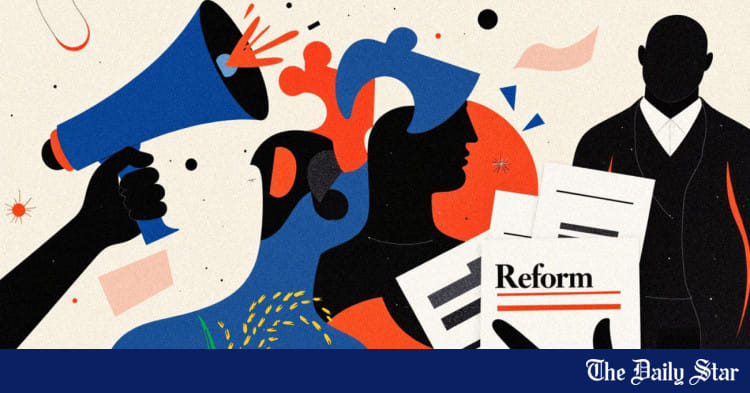Saif
Senior Member
- 13,589
- 7,382
- Origin

- Axis Group

- Copy to clipboard
- Thread starter
- #273

Either listen to what BNP says or leave: BNP leader to OCs, UNOs
Chattogram south city Bangladesh Nationalist Party (BNP) convener and former Patiya upazila chairman Idris Mia has said the administration will be forced to listen to the BNP leaders and activists if they remain united. “The administration will be forced to listen to the BNP if we remain...
Either listen to what BNP says or leave: BNP leader to OCs, UNOs
Staff Correspondent Chattogram
Published: 16 Jun 2025, 18: 24

Chattogram south city BNP convener and former Patiya upazila chairman Idrich Mia
Chattogram south city Bangladesh Nationalist Party (BNP) convener and former Patiya upazila chairman Idris Mia has said the administration will be forced to listen to the BNP leaders and activists if they remain united.
“The administration will be forced to listen to the BNP if we remain united. Either they listen to us or the OC’s and UNO’s will have to leave this place. They should not be given chances anymore. There is no time for that either. We will have to realise our demand on our own,” he stated.
He made the remarks while addressing an Eid reunion orgnised jointly by all BNP units of Satkania upazila at a local community hall in the upazila on Tuesday.
A video of his speech went vial on social media drawing massive criticism countrywide.
The video shows a banner behind the BNP leader during his speech which mentioned Satkania upazila BNP organisational unit as the organiser of the Eid reunion programme. Idris Ali was the chief guest at the programme.
Asked about the viral video, the BNP leader claimed he had not given any such speech addressing the upazila nirbahi officers or the officers-in-charge (OC) of the local police station.
Idris claimed that the video was generated artificially to undermine him.
Earlier, on 2 February, the BNP announced the partial committee for the party’s Chattogram south city unit. The complete committee was announced on 6 May. Before this term, Idris Mia also served as the vice-president of the same unit of the BNP.
Staff Correspondent Chattogram
Published: 16 Jun 2025, 18: 24
Chattogram south city BNP convener and former Patiya upazila chairman Idrich Mia
Chattogram south city Bangladesh Nationalist Party (BNP) convener and former Patiya upazila chairman Idris Mia has said the administration will be forced to listen to the BNP leaders and activists if they remain united.
“The administration will be forced to listen to the BNP if we remain united. Either they listen to us or the OC’s and UNO’s will have to leave this place. They should not be given chances anymore. There is no time for that either. We will have to realise our demand on our own,” he stated.
He made the remarks while addressing an Eid reunion orgnised jointly by all BNP units of Satkania upazila at a local community hall in the upazila on Tuesday.
A video of his speech went vial on social media drawing massive criticism countrywide.
The video shows a banner behind the BNP leader during his speech which mentioned Satkania upazila BNP organisational unit as the organiser of the Eid reunion programme. Idris Ali was the chief guest at the programme.
Asked about the viral video, the BNP leader claimed he had not given any such speech addressing the upazila nirbahi officers or the officers-in-charge (OC) of the local police station.
Idris claimed that the video was generated artificially to undermine him.
Earlier, on 2 February, the BNP announced the partial committee for the party’s Chattogram south city unit. The complete committee was announced on 6 May. Before this term, Idris Mia also served as the vice-president of the same unit of the BNP.









